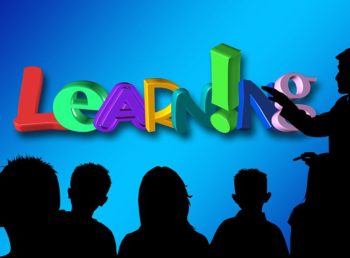 How Teachers Support Students’ Unique Learning Talents
How Teachers Support Students’ Unique Learning Talents
I work primarily with kindergarten through 2nd grade students. Each student I work with has unique talents, skills, and needs to remediate or nurture. When working with over 20 students in a classroom, I must focus on creating curriculum for the greater good of the student population based on the grade-level common core standards mandated by California. Then I must adapt my curriculum to meet the needs of highly challenged students as well as gifted and talented students. When working with second grade students after the COVID school shutdowns, a few students are still emerging at the first-grade level in their reading and math skills while others are performing at the 4 through 5th grade levels. [Read more…]

Mary Ann Burke, Ed.D., Digital Education Expert, is a substitute distance learning teacher for Oak Grove School District in San Jose, California and the author of STUDENT-ENGAGED ASSESSMENT: Strategies to Empower All Learners (Rowman & Littlefield: 2020). Dr. Burke creates digital language arts and substitute teaching K – 12 activities for teachers and parents. She is the Cofounder of the Genparenting.com blog. Burke is the former Director II of Categorical & Special Projects for the Santa Clara County Office of Education that supports 31 school districts serving 272,321 students in Santa Clara County. She is also a previous Director – State & Federal Compliance for Oakland Unified School District, the former Director – Grantwriter for the Compton Unified School District, and was the initial VISTA Director for the Community Partnership Coalition in southern California. Much of her work focuses on creating innovative digital trainings and partnership programs for teachers and families to support students’ learning. These programs were featured as a best practice at a National Title I Conference, California’s Title I Conferences, AERA Conferences, an ASCD Conference, the NASSP Conference, and statewide educator conferences.
 What is Response to Intervention Education?
What is Response to Intervention Education?
 Understanding Parent Participation in Special Education
Understanding Parent Participation in Special Education What Are Your Special Education Rights?
What Are Your Special Education Rights? What Are the 6 Principles of IDEA?
What Are the 6 Principles of IDEA?